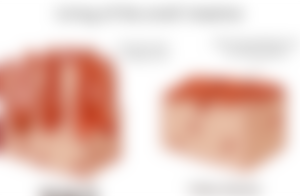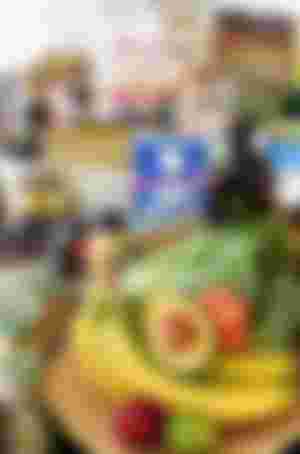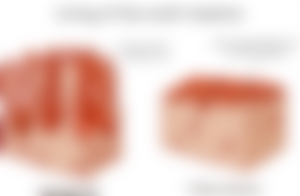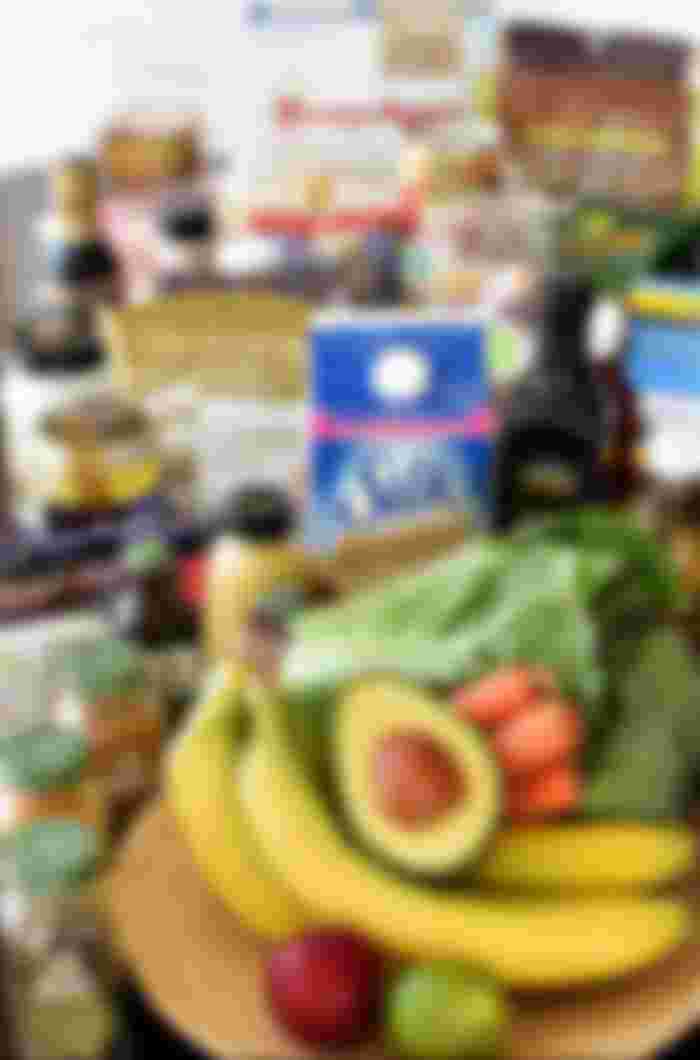October 31, 2020

Do you know the feeling of having food intolerance which deprived you of taking any foods that you like?
I have mentioned in my latest article that I have gluten and lactose intolerance. Due to this intolerance, I usually deprived myself of eating foods that I wanted to eat, especially my favorite foods. Most of the products that we can buy at supermarkets contain gluten and lactose, such as bread, cakes, cereals, pasta, biscuits, crackers, chips, and other processed foods. Even some oats have gluten too, and food seasonings such as soy sauce, oyster sauce, salad dressings, and other kinds of seasonings contain gluten. My favorite cow's milk, yogurt, cheese, and other dairy products also contain lactose, which in fact, are good sources of healthy nutrients that are important to our body.
What is Lactose and Gluten Intolerance?
Lactose Intolerance:
The body cannot digest lactose well (the sugar found in dairy products). This is due to a lack of lactase, an enzyme found in the small intestines, that helps to breakdown lactose into glucose and galactose.
There are four types of Lactose Intolerance:
1. Primary Lactose Intolerance - this usually occurs when the amount of lactase decreases as people age.
2. Secondary lactose intolerance - occurs because of the injury of the small intestine. It could be a result of infection, inflammatory bowel disease, celiac disease, or other diseases.
3. Developmental lactose intolerance - this may exist in premature babies and usually develop over a short period.
4. Congenital lactose intolerance - an extremely rare genetic disorder wherein there are only a little or no lactase is made from birth.
Gluten Intolerance:
Gluten is a kind protein that can be found in wheat, barley, and rye. Food intolerance like gluten intolerance involves our digestive system. The immune system overreacts to certain food which causes potentially serious symptoms. This is often confused with celiac disease or also known as a food allergy.
Signs and Symptoms:

The signs and symptoms of both lactose and gluten intolerance have similarities. People with food intolerance experience digestive problems such as:
gassiness or abdominal bloating
abdominal pain or cramps, flatulence, diarrhea
and even vomiting (particularly in adolescence).
The adverse reaction often appears half to two hours after consumption. The severity of symptoms increases with the amount of lactose and gluten consumed. Extreme abdominal pain can be a serious medical issue, it should receive immediate medical attention.
How will I be able to live in this world without taking any lactose and gluten? Every time I buy stuff at the supermarket, I am always tempted to buy those yummy foods, but, my mind always contradicting and depriving me to buy it. Well, I guess, my mind knows what is the right thing to do. However, there are times that the more I deprived myself of eating forbidden foods, the more I craved for it. How will I be able to deal with this if my everyday foods contain gluten? And my favorite foods contain lactose? I swear, it is so difficult to have lactose and gluten intolerance.
What will happen if I continue eating foods containing lactose and gluten?
Ever since I was young, I like eating foods containing gluten and lactose. My mother's milk which was my main food when I was a baby contains lactose. When I grow up, my breakfast usually consists of bread and milk, my snacks have gluten, and our meals are usually cooked with soy sauce and other kinds of sauce that contain gluten. To be honest, I didn't mind the symptoms when I was younger. Who would have thought that I have food intolerance anyway? I was drinking milk since I was young. But I remember there are times after eating bread or pasta and drinking milk or coffee, my tummy gets bloated and irritated an hour after consumption.
During those moments, I thought it was just a side effect of too much consumption of bread or milk. I learned about having food intolerance just last 2017 after I did a laboratory test and the results include my food allergies.
Gluten and lactose intolerance are often the symptoms of celiac disease. If I will continue eating foods containing lactose and gluten, there is a possibility that my small intestine will be damaged.

Celiac disease - is an immune disease that people can not consume gluten because it will damage the small intestine. The immune system will respond by damaging the lining of the gut in the small intestine which causes the body not to produce enough lactase, the enzyme will not work properly, or people may not be able to digest lactose. This can cause uncomfortable gut problems.
Absorption of nutrients also happens in the small intestine, therefore, people with celiac disease may not be able to absorb well the food nutrients due to damage of the lining in the small intestine.
How to know if you have celiac disease?
Celiac disease is genetic. The effects of celiac disease vary from person to person. Symptoms may happen in the digestive system, or other parts of the body. Some might have diarrhea and abdominal pain, while others may be irritable or depressed. Children often experience irritability and some people do not have any symptoms.
I actually have these symptoms. I am sometimes irritated and having irritable bowel syndrome which is one of the symptoms of celiac disease too. Although the symptoms are clear, I don't want to jump to the conclusion that I have celiac disease (knock on wood). I need to consult a physician first before considering myself having celiac disease.
Diagnosis:
If you think you have a problem with lactose and gluten, it is important to consult your dietitian or physician. Do not remove lactose from your diet if you haven't received any recommendation from your healthcare professional. This could potentially decrease your calcium intake.
It is often difficult to distinguish between celiac disease and gluten intolerance, so a test for antibodies may help.
To diagnose celiac disease, a doctor may ask for:
Blood tests: If findings indicate the presence of certain antibodies, the person may have celiac disease.
A biopsy: This includes taking a tissue sample from the lining of the intestine. If findings show damage to the lining, the person may have celiac disease.
Once the doctor diagnoses a celiac disease, the doctor may then look for signs of IBS or gluten intolerance.
Lactose and gluten intolerance management:

The only treatment that can help you manage celiac disease and food intolerances is through gluten and lactose-free diet. If you have noticed in my recipe articles, I usually use oats, chia seeds, and milk kefir, because those are gluten and lactose-free.
Other products like vitamins, supplements, hair and skin products, toothpaste, and lip balm also contain gluten.
Always check food and product labels for gluten and lactose.
Design your own everyday meal plans and make healthy choices about the types of foods to eat.
Foods to avoid:
Wheat, barley, and rye contain gluten, which may be present in:
Bread
Cookies and biscuits
Pasta
Semolina-based products
Couscous
Some beers
Gluten can also be found in products that are not obviously cereal-based, such as:
Seasoning
Sauces
Soups
Canned foods
Spices
Lactose is also important to our health. Make sure to consult a dietitian before going into a lactose-free diet. Your dietitian will make sure that you are not missing out on important nutrients that you can actually get from milk and other dairy foods.
Fortified foods and drinks with calcium are important. Plant-based milk is available in supermarkets such as soya milk, rice milk, almond milk, oat milk, and others are lactose-free.
Milk products like yogurts and cheeses (hard and soft) are very low in lactose and can be consumed by most people with lactose intolerance. All kinds of butter and some margarine are suitable.
Incorporating milk with other foods may help your body to digest lactose (ex. adding milk to mashed potatoes).
Some gluten-free foods sometimes contain milk. Most people with lactose intolerance do not need to avoid these foods.
Once a person with celiac disease follows a gluten-free diet, the gut can heal and will be able to digest lactose again. Therefore, lactose intolerance is usually temporary, and most people with celiac disease do not develop lactose intolerance.
Sometimes it is really difficult to avoid foods with gluten and lactose. However, if it will compromise my health, I rather deprived myself of taking my favorite, and start a healthy diet!
Written by: @Jane
Sources:
https://www.coeliac.org.uk/information-and-support/coeliac-disease/conditions-linked-to-coeliac-disease/lactose-intolerance/
https://medlineplus.gov/celiacdisease.html




This is so tough. What has been your best coping mechanism?